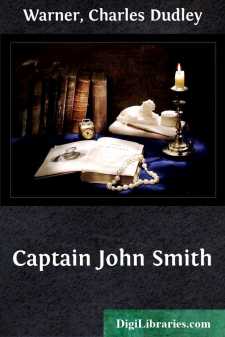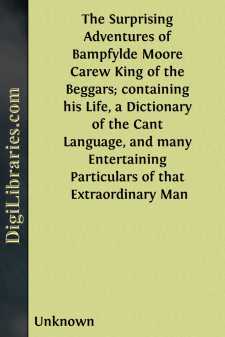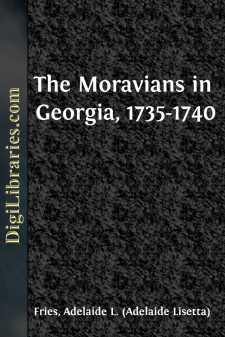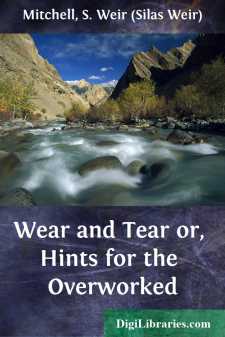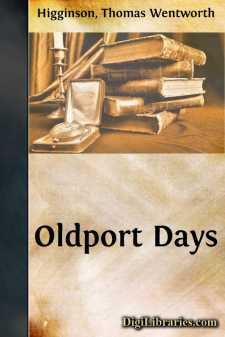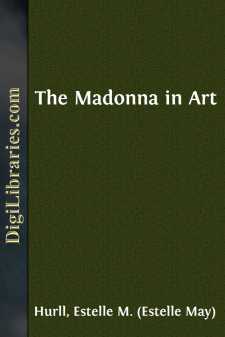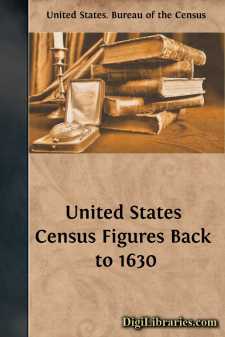Non-Classifiable
- Non-Classifiable 1768
Non-Classifiable Books
Sort by:
by:
Conny Keyber
Madam, It will be naturally expected, that when I write the Life of Shamela, I should dedicate it to some young Lady, whose Wit and Beauty might be the proper Subject of a Comparison with the Heroine of my Piece. This, those, who see I have done it in prefixing your Name to my Work, will much more confirmedly expect me to do; and, indeed, your Character would enable me to run some Length into a...
more...
I. RECAPITULATION. The original address on Animal Sanctuaries in Labrador was published in the spring of 1911. The Supplement was published in the summer of 1912. The present Plan, or Second Supplement, is now being submitted for consideration to the Fourth Annual Meeting of the Commission of Conservation at the beginning of 1913. These papers are published for free distribution among those who are...
more...
PREFACE When I consented to prepare this volume for a series, which should deal with the notables of American history with some familiarity and disregard of historic gravity, I did not anticipate the seriousness of the task. But investigation of the subject showed me that while Captain John Smith would lend himself easily enough to the purely facetious treatment, there were historic problems worthy of...
more...
by:
Unknown
THE LIFE AND ADVENTURES OF BAMPFYLDE MOORE CAREW. Mr. Bampfylde Moore Carew was descended from the ancient family of the Carews, son of the Reverend Mr. Theodore Carew, of the parish of Brickley, near Tiverton, in the county of Devon; of which parish he was many years a rector, very much esteemed while living, and at his death universally lamented. Mr. Carew was born in the month of July 1693; and...
more...
In the life of any individual, association, or nation, there will probably be one or more occurrences which may be considered as success or failure according to the dramatic features of the event and the ultimate results. Of this the Battle of Bunker Hill is a striking example. On the morning of June 17th, 1775, a force of British soldiers attacked a small body of raw, ill-equipped American volunteers,...
more...
WEAR AND TEAR, OR HINTS FOR THE OVERWORKED. Many years ago I found occasion to set before the readers of Lippincott's Magazine certain thoughts concerning work in America, and its results. Somewhat to my surprise, the article attracted more notice than usually falls to the share of such papers, and since then, from numerous sources, I have had the pleasure to learn that my words of warning have...
more...
by:
Morrison Heady
The reader will remember, that, in the preface of "The Printer Boy," I promised the next volume should be "The Farmer Boy; or, How George Washington became President." That pledge has never been redeemed, though some labor has been performed with reference to it. And now Providence seems to direct the fulfilment of the promise by the pen of another, soon to be well known, I doubt not,...
more...
OLDPORT IN WINTER. Our August life rushes by, in Oldport, as if we were all shot from the mouth of a cannon, and were endeavoring to exchange visiting-cards on the way. But in September, when the great hotels are closed, and the bronze dogs that guarded the portals of the Ocean House are collected sadly in the music pavilion, nose to nose; when the last four-in-hand has departed, and a man may drive a...
more...
INTRODUCTION. It is now about fifteen centuries since the Madonna with her Babe was first introduced into art, and it is safe to say that, throughout all this time, the subject has been unrivalled in popularity. It requires no very profound philosophy to discover the reason for this. The Madonna is the universal type of motherhood, a subject which, in its very nature, appeals to all classes and...
more...
A Few Words About These United States Population Statistics. All figures listed below for years before 1992 are US Census Bureau figures as per the source files. Where there were an assortment of figures for a specific year, we averaged them. 1992 was an estimate. Years after 1992 are our estimates on a predicted growth rate of 1%, as the average growth rate of all the averaged figures from 1972-1992...
more...




